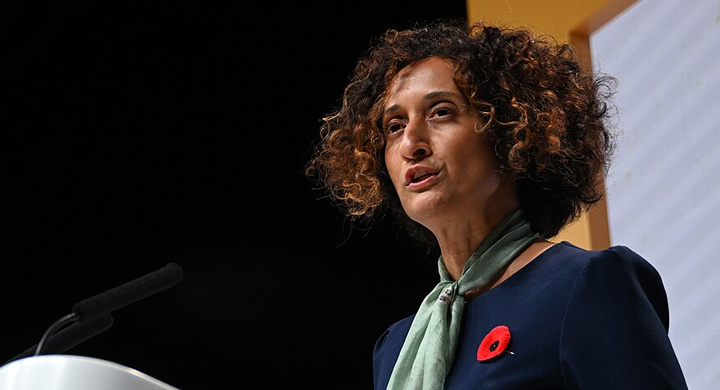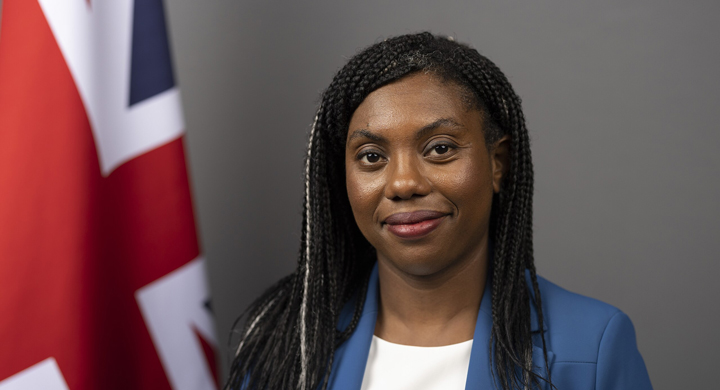Tim Dieppe unpacks the High Court ruling and its implications for Christians
In an eighty-three-page judgment, the High Court has ruled that Michaela School in Brent did not breach human rights by banning Islamic prayer rituals at the school.
Alleged discrimination
Michaela School was taken to court by a Muslim pupil who alleged that the school was discriminatory for not allowing Islamic prayer rituals at the school. About half the c.700 pupils at the secular secondary free school are Muslim.
The headteacher, Katherine Birbalsingh is known as Britain’s strictest headteacher. The school has a secular ethos and achieves outstanding academic results with very strict discipline. Its Progress 8 score, which measures academic progress between the ages of 11 and 16, was the best in the country for two years running.
The school introduced its ban on Islamic prayer rituals in May 2023, following an interim ban in March 2023. The ban on prayer rituals applies to all religions, but there is no evidence that pupils from any religion other than Islam wish to perform prayer rituals during the school day.

Intimidation, threats, and allegations of Islamophobia
At its peak, around 30 pupils were engaging in prayer rituals openly in the school yard last year. Some of the Muslims praying had been intimidated into doing so by being told that they were bad Muslims if they did not do so. One Muslim pupil who had not previously worn a headscarf was intimidated into doing so. Another Muslim pupil dropped out of the school choir after being told by other Muslim pupils that this was ‘haram’.
Following the ban, the school faced an online campaign over its approach to religion, and allegations of Islamophobia. Threatening and abusive emails were sent to the school and abusive phone calls were received in the school office. There was a bomb threat that was taken seriously by police. 4,000 people signed an online petition accusing a teacher of “disgusting, Islamophobic behaviour.” A brick was thrown through the window of the home of one of the teachers and glass bottles were thrown into the school yard and smashed. There was an attempted break in at a teacher’s home. The school felt obligated to engage two security guards for the headteacher and another teacher, both of whom felt that they could no longer travel safely to work on public transport.
Human rights claim
The pupil bringing the case claimed that she was unable to fulfil her Islamic duty to pray five times a day. She wished to perform one of these five prayers during school hours, and claimed it was a breach of human rights not to allow her to engage in these prayers.
The school argued that it was a secular school, and that the pupil freely chose to attend this school knowing that it has a strict behavioural regime. She is free to transfer to a school that would permit her to pray if she wishes to. It also argued that Islam permits someone to make up for a missed prayer later in the day. The school further argued that it could not accommodate the practicalities of large numbers of pupils engaging in Islamic prayer rituals in the school.
The court agreed with the school’s arguments that the pupils human rights were not violated and that the practicalities cannot be accommodated by the school.
While the court accepted that there was an indirect discriminatory effect on Muslim pupils who were more likely than non-Muslim pupils to wish to pray during the school day, it argued that this was “a proportionate means of achieving legitimate aims” of the school and was therefore justified.
The school also argued that prayer rituals were “damaging social cohesion” in the school community and the court also accepted this argument.
Prayer is permitted
It is important to note that Ms Birbalsingh’s evidence was that prayer has always been permitted at the school. Indeed, until last year, prayer rituals had not been prohibited either. Prospective parents are made aware that there is no designated prayer room. Members of Sixth Form who wish to pray during the lunch period or able to do so at the Brent Civic Centre which is approximately five minutes walk away from the school and has a prayer room. Many Muslim pupils who wish to pray at the end of the school day do so there.
Responses
Responding to the judgment, headteacher Katherine Birbalsingh wrote:
“A school should be free to do what is right for the pupils it serves. The court’s decision is therefore a victory for all schools.
“In 2014, 30% of our intake was Muslim. It is now 50%. We are over-subscribed. If our families did not like the school, they would not repeatedly choose to send their children to Michaela.
“At the two Welcome Events that all parents must attend before sending their child to Michaela, I run through everything that makes Michaela different to other schools: constant supervision, family lunch, silent corridors, no prayer room, easy ways to get detention, strict uniform etc. If parents do not like what Michaela is, they do not need to send their children to us.
“Can it be right for a family to receive £150,000 of taxpayer-funded legal aid to bring a case like this? . . . Indeed, this mum intends to send her second child to Michaela, starting in September. At the same time, this mum has sent a letter to our lawyers suggesting that she may take us to court yet again over another issue at the school she doesn’t like, presumably once again at the taxpayer’s expense.
“Last year, we watched our Muslim pupils put under pressure by a tiny number of others to fast, to pray, to drop out of the choir, to wear a hijab. I watched one of my black teachers racially abused and intimidated, another teacher who had her personal home nearly broken into, and another with a brick thrown through her window. I have a duty of care to protect all of our pupils but also to my staff. There is a false narrative that some try to paint about Muslims being an oppressed minority at our school. There are, in fact, the largest group. Those who are most at risk are other minorities and Muslim children who are less observant.”
The Education Secretary, Gillian Keegan, welcomed the court’s decision, saying:
“I hope that this judgement gives all school leaders the confidence to make the right decisions for their pupils.”
The Minister for Women and Equalities, Kemi Badenoch wrote that:
“This ruling is a victory against activists trying to subvert our public institutions. No pupil has the right to impose their views on an entire school community in this way. The Equality Act is a shield, not a sword and teachers must not be threatened into submission.

The pressure to Islamise
This is a welcome result. The school was right not to capitulate to pressure from Muslims to allow prayer rituals. It is not prayer that was banned, but prayer rituals that were making a show of prayer and being used to pressure and intimidate others to be more observant Muslims than they wanted to be.
It is clear that the strong secular ethos of the school was a factor in the court’s decision. What also counted in this case was that this school was able to persuade the court that it would be impractical for the school to facilitate large numbers of Muslims engaging in prayer rituals in the school buildings as would be required in the winter months.
These factors are somewhat unique to this particular school so I do wonder whether we might see similar cases brought against other schools for not allowing Islamic prayer rituals. If this school had not been so strongly secular in its ethos and so strict in its behavioural requirements, or had been able to facilitate large numbers of pupils engaging in prayer rituals then it is likely it would have lost the case.
Back in 2018, we saw a coordinated campaign to force a primary school in Newham to allow children to wear the hijab. St Stevens School in Newham was named the best primary school in the country in 2017. Yet when it asked the government for support in continuing to ban girls under 8 years old from wearing the hijab, no support came. The school faced a coordinated campaign of bullying and harassment leading the chair of governors to resign. There are now some 150 schools in the country which make wearing the hijab compulsory. Other relevant cases include the Batley Grammar school teacher who taught us all that we don’t have free speech in relation to Islam, and the Wakefield school where a scuffed Qur’an lead to death threats and police involvement.
This court ruling is a welcome setback for activists, as Badenoch says.
The pressure in areas with high Muslim populations to Islamise the schools is intense. This particular battle has been won, but in the larger war, we are losing. Few schools have such resolve and belief in their values and ethos. A strongly Christian school would also be able to resist the pressure to Islamise. However, most schools will capitulate under such pressure.
This is why the virtue of courage is so critical to our time and to our Christian faith. Without courage and conviction, our beliefs, values or ethos will be dead documents, abandoned at the first sign of trouble.
Michaela School has won an important battle to resist Islamisation. There will be many more battles to follow. All of them will require immense courage to fight and to win.

